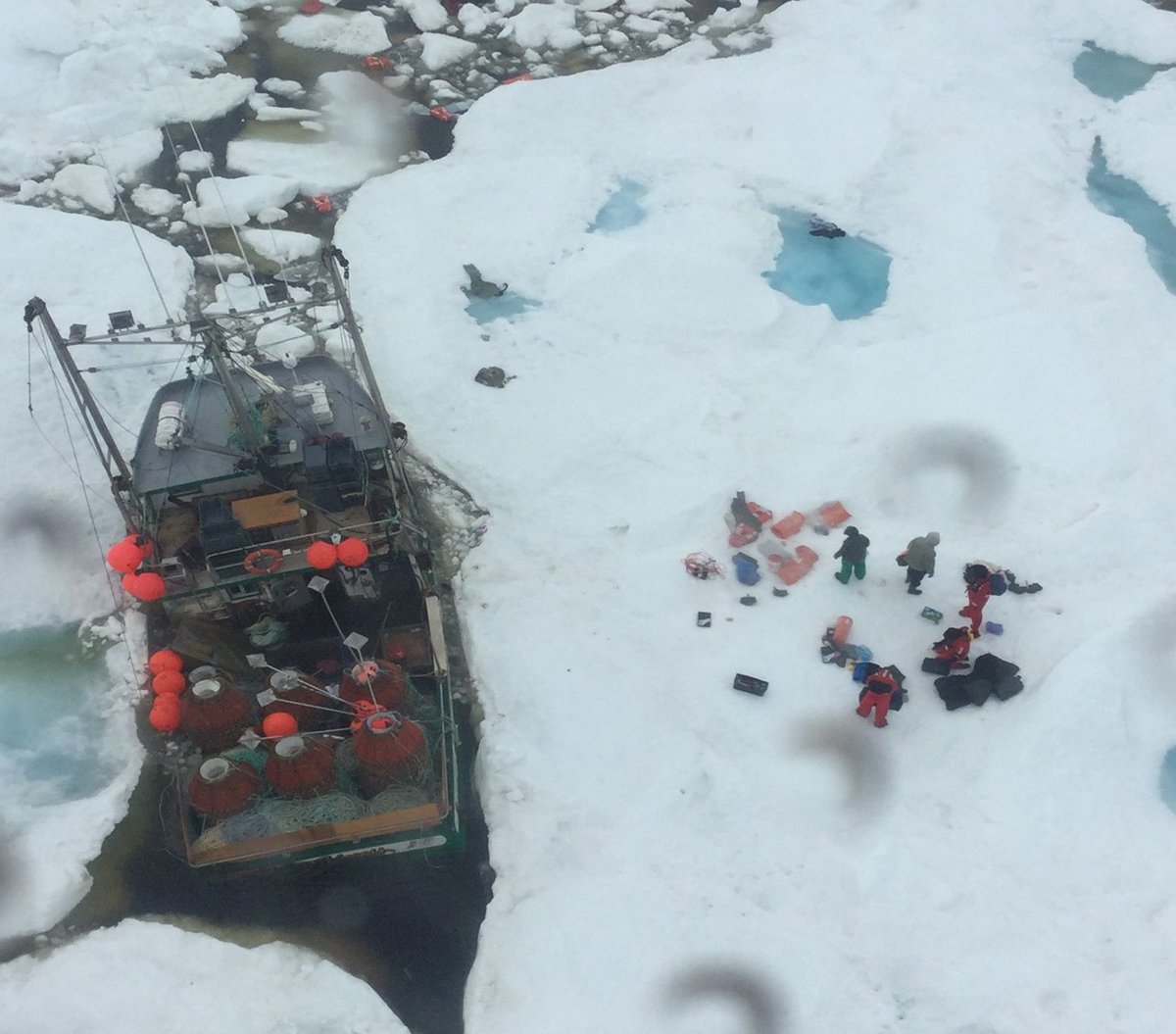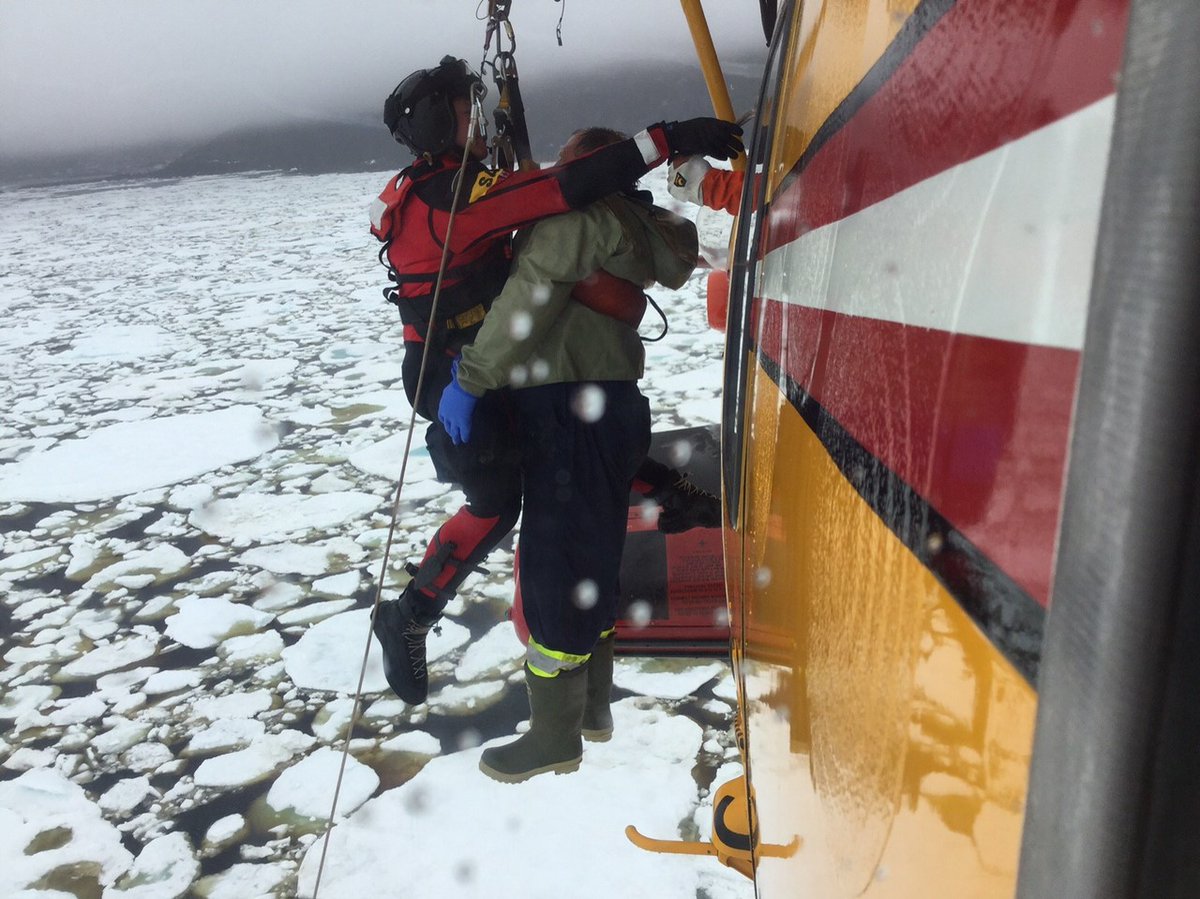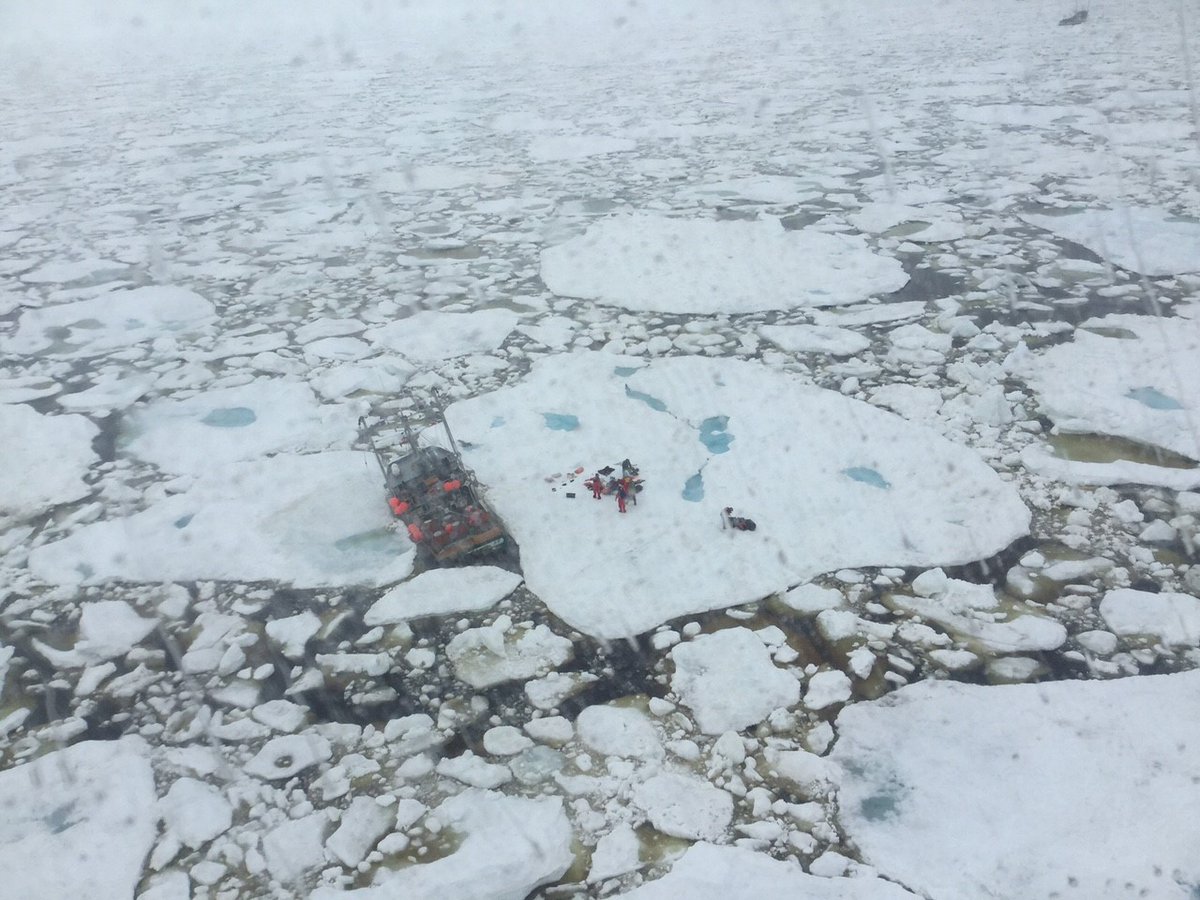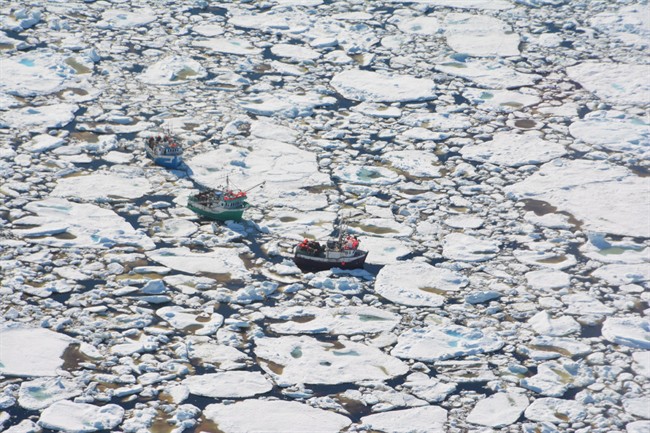Unusually heavy Arctic pack ice has trapped multiple vessels, stymied the fishing season and triggered a high-stakes rescue operation from a sinking ship off Newfoundland.

Five fishermen were rescued Wednesday from the Avalon Princess fishing boat, which started to take on water after getting stuck in thick sea ice near La Scie, N.L.
Trevor Hodgson, the Canadian Coast Guard’s superintendent of ice operations for the Atlantic region, said the heavy ice is more than two metres thick in some areas off the province’s northeast coast.
“We had a bit of stuff that forms over the winter, the normal ice in the area,” he said. “What we’re experiencing now is the ice that has come south through the Arctic due to melting up there.”
READ MORE: Marine Atlantic ferry freed after being stuck in thick ice off Cape Breton
What’s unusual this year, Hodgson said, is the way the winds have pushed the thick pack ice towards land rather than out to sea.
He said ice conditions are so bad the Coast Guard has been unable to free trapped vessels with its icebreaker Amundsen. Three fishing vessels remain trapped in ice off northeastern Newfoundland.
“It’s really dangerous for our icebreakers to go and operate around fishing vessels because we’re pushing around these large pieces of ice that can cause damage,” Hodgson said.

Get daily National news
“It’s a lot of heavier, boulder-like pieces of ice going towards the fishing vessels and it’s just not safe.”
Alex Roy, a naval cadet with the military’s Joint Task Force Atlantic, said a Cormorant helicopter was in the air on a training mission when an alert was issued by a sinking fishing boat off the coast of Newfoundland.
He said the crew from 103 Search and Rescue Squadron at 9 Wing Gander assisted the fishing boat at around 11 a.m.
All five fishermen were airlifted to safety by about 2 p.m. and did not require medical attention, Roy said.
The province’s snow crab fishing season has been open for several weeks but most fishermen have been stuck ashore waiting for potentially hazardous sea ice to pass.
READ MORE: ‘Ice house’ thaws revealing a pleasant surprise
As the season progresses, however, the snow crab shell becomes soft and is no longer desirable. Hodgson said this has created a time crunch for fishermen vying for a piece of the lucrative industry.
“There is more willingness to take on risk to catch the crabs because we’re getting to the end of the season and they want to make money,” he said.
Meanwhile, Hodgson said the Coast Guard’s icebreakers, which usually aren’t required after mid-April, continue to escort commercial vessels and ferries through the thick Arctic pack ice.
Earlier this week, a polar bear carcass washed ashore on the Avalon Peninsula, sparking concerns about the unusually heavy pack ice and its impact on sea life.
Hodgson said the Department of Fisheries and Oceans continues to research climate change, the melting of polar ice caps and the movement of Arctic pack ice.













Comments
Want to discuss? Please read our Commenting Policy first.